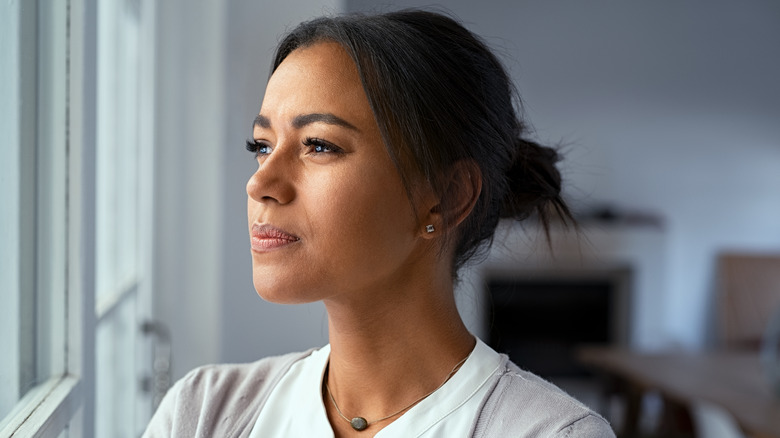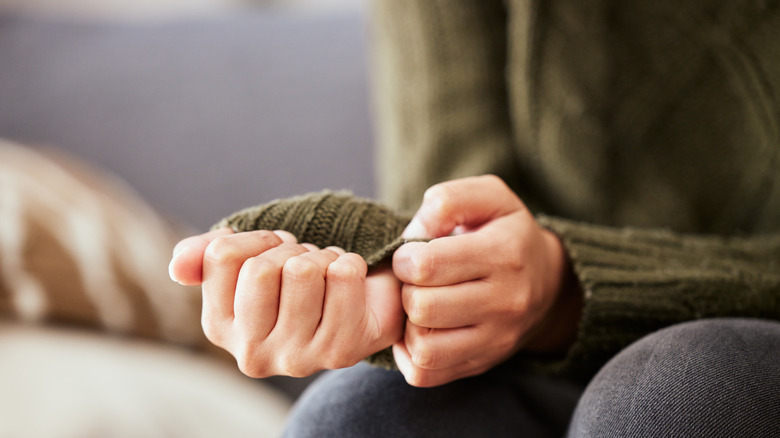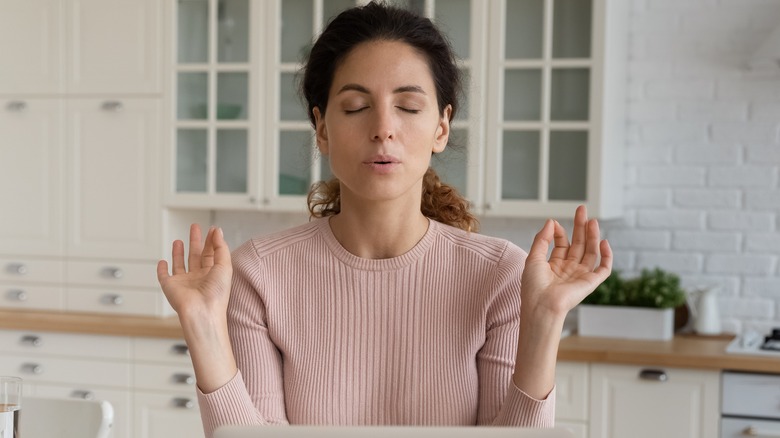Embracing Your Anxiety May Be The Key To Managing It - Here's How To Do It
There's an irony to the song "Into The Unknown" from Frozen 2, in the sense that many of us, for better or for worse, are reluctant to head out into unfamiliar territory. In fact, fearing the unknown is a common trigger of anxiety for most people, and it's a commonality that we, as humans, share and empathize with. What we choose to do with our anxiety is the deciding factor in our life journeys. It affects how we grow, mature, and develop emotionally. It also affects how we exude self-love.
When we get to the root of the anxiety, rather than pushing it away, it helps us understand ourselves better and can celebrate how far we've come in the process. Some embrace their anxieties by finding the best podcasts that encourage self-love. Others do so through breathing techniques, or sticking post-it note affirmations on their bathroom mirror.
Whatever method you choose, leaning into anxiety helps us learn from our fear, and not run away from it. It's all about us stepping into our ice queen power, and not falling prey to the whole "conceal don't feel" mantra. In fact, feeling anything at all is power, and embracing anxiety may be the key to managing it.
What fuels anxiety?
If anxiety were a friend that came to your home, you wouldn't shut the door on it, lock it out and throw away the key. You would embrace it with open arms, hand it a hot beverage, and offer the solace of comfort to make it feel better. So, why do we so often treat ourselves and our anxieties in the exact opposite manner?
BBC answers this question by focusing on the discomfort factor, often triggered in moments of distress and the fear of not knowing what actions may catalyst what results. "Uncertainty can intensify how threatening a situation feels," psychologist Ema Tanovic told the outlet. It's not even a matter of encountering direct threats per se, but really the ability to exaggerate unpredictable situations in our minds. That's why some experiencing anxiety may not act at all, because the risk of intensifying the uncertainty of the situation is greater than if they did nothing at all.
But don't be fooled, band-aiding our anxiety only numbs our fear, not heals it, and treating it like such deludes the fact that we could be benefitting from what our minds are trying to tell us: that either we care an extraneous amount about something, or that there's a bigger issue that needs to be addressed.
How to embrace anxiety
When you start feeling anxious, take a second to pause and ask yourself: "why do I feel this way?" It doesn't have to be a profound, philosophical answer. The simplest things can trigger anxiety because it's our body's way of telling us something needs correction. Sometimes it's because we're not as prepared as we could be for that business pitch, or maybe it's because you skipped out on breakfast and rarely skipped a meal. Whatever the case, pinpointing the small concerns as much as the deep worries can have an impact on embracing our anxieties.
The act of embracing can look different to each individual. While there are therapist-approved ways to cope with anxiety, breathing exercises are popularly used to embrace our anxieties because they control our body's physical reaction to the fear. Byrdie reported that breathing in for 12 seconds, closing your eyes, and vocally acknowledging the existence of fear helped reduce heightened levels of creeping anxiety.
Grounding ourselves in breath overall allows us to connect to the present, and keeps us from intensifying those worries of uncertainty. And by telling yourself you recognize your anxiety out loud, you are putting a face to it, bringing it out of your subconscious and into reality, which can help put the fear into scale. After all, our fears are only as big as what we make them out to be.


